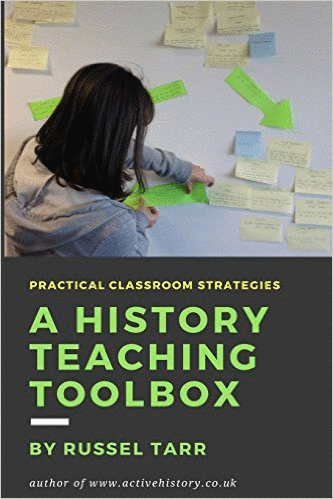The following materials are drawn together from other sections on this website: Cold War Origins | The Foreign Policy of JFK.
A. The Yalta and Potsdam Conferences, 1944-45
Starter Video: The End of World War Two
A useful starter clip to set the scene.
Individual Research Task: Churchill, Stalin and Roosevelt
The class is divided into three teams, each representing the press officer for one of the Big Three.
a. Using your own knowledge and other research, provide THREE key points suggesting your man will work well with the others. Write these into the left hand column.
b. Then provide THREE key point against each of the other two. Place these in the right hand column.
c. Debate as a class and then take a vote on which character is MOST likely to create DISCORD at the conference.
An extension task with a Theory of Knowledge focus is provided which requires students to reflect carefully on the values and limitations of photographs as historical source material.
The Yalta Conference: Interactive Computer Simulation!
An artificial intelligence simulation, complete with a worksheet: students choose whether to play as Churchill, Roosevelt or Stalin, and then pit their wits against their opponents to achieve their objectives. This computer lesson runs itself and is a great way of learning about the personalities, issues and results of the Yalta Conference.
The Yalta Conference: What was actually decided?
Students are provided with detailed factual information about what was actually decided at Yalta, and then they use this to form a judgement about how far each of the Big Three would have been happy with these outcomes based on what they now know about their initial objectives.
From Yalta to Potsdam
Through a focus on primary source analysis, students investigate how far Truman's bellicosity towards the Soviet Union was apparent from the outset, or was merely a position he adopted once he was in possession of the atomic bomb.
The Potsdam Conference: When and why did the US policy move from one of co-operation to confrontation?
Students consider the extent to which the Potsdam conference was characterised more by conflict that by co-operation.
Interactive quizzes on this topic [tips] |
|||
 |
 |
 |
 |
B. The Berlin Blockade (1948-49)
The Berlin Blockade - Interactive Newsfeed Exercise [Interactive]
Students are presented with a series of "newsfeeds" about the Berlin Blockade, which they use to complete this worksheet, and then answer a series of questions.
OR
The Berlin Blockade: Timeline, Analysis and Video Work
A standalone worksheet which guides students through the essential causes, consequences and events of the crisis.
The Berlin Blockade: Timeline Challenge [Interactive]
This can be used as a follow-up from the previous exercise or (if pushed for time) an alternative. Students are presented with a series of information feeds, each one of which contains an error. Students get points for their teams if they identify the error correctly.
The Berlin Blockade - 10m video documentary
The Berlin Blockade - 5m video documentary
Historiography of the Berlin Blockade
Students are provided with a historiographical overview and structure questions to familiarise themselves with the debate.
Model Essays by RJ Tarr:
Analyse the roots of the Cold War before 1945 (note: teacher password required).
To what extent were conflicting views about Germany the main cause of the Cold War up to 1949? (note: teacher password required).
In what ways, and with what results, was Germany a source of Cold War tensions between 1945 and 1962? (note: teacher password required).
Podcast: Berlin Blockade: Causes and Consequences
The first half focuses on the causes, the second half on the consequences, of the Berlin Blockade.
Part 1 - Causes: Focuses on Aggression / Mistrust / Ideology.
Part 2 - Consequences: Focuses on economic / social / political / cultural / military factors.
Reference to different historians and the orthodox / revisionist / post-revisionist schools of history are outlined.
C. The Vienna Summit / The Berlin Wall (1961)
Roleplay Exercise - Kennedy and the Berlin Crisis of 1961 | Multimedia teacher-led presentation | Briefing Sheets
In this exercise students will take the role of an advisor to President Kennedy. By discussing different courses of action and then comparing them to what Kennedy did, they will form a balanced judgement on his handling of the Berlin Crisis of 1961. The class will be divided into five groups and given five different scenarios from different points during the crisis. Within each group, half the students will be required to construct a case in favour of the first course of action that is proposed, whilst the other half will construct a case in favour of the second. The teacher will then chair the debate before telling students what Kennedy did at each stage through a multimedia presentation.

© 1998-2026 Russel Tarr, ActiveHistory.co.uk Limited (Reg. 6111680)
1 Torrin Drive, Shrewsbury, Shropshire, SY3 6AW, England
Privacy Policy | Contact






